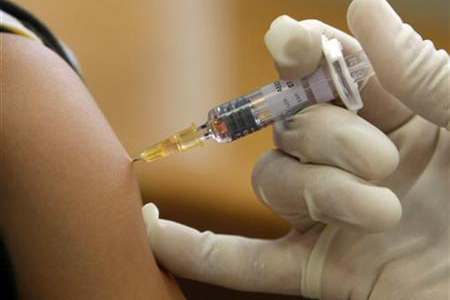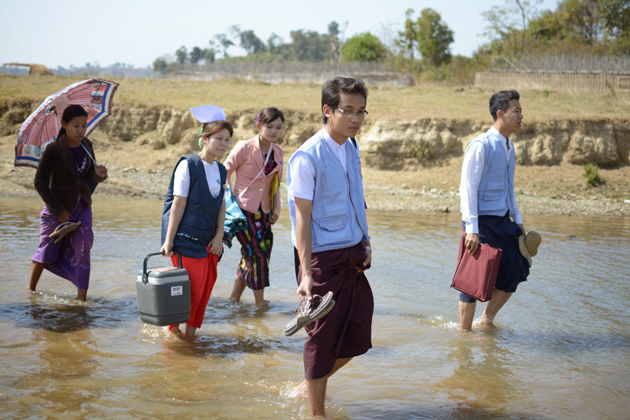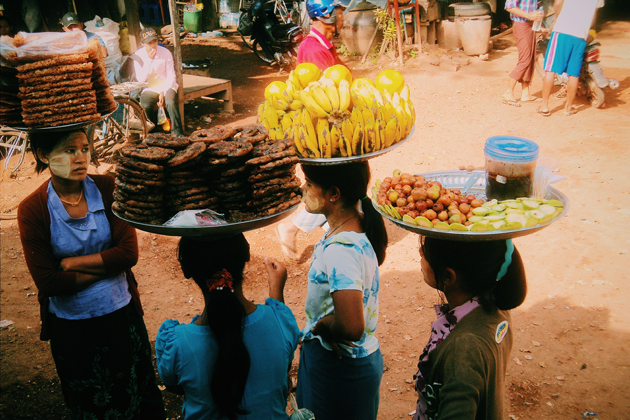Which vaccinations do I need to travel to Myanmar? The answer actually will vary depending on:
- Which part of the country you will take tours to, for example, Bagan tour or Inle lake tour
- The time of the year when you plan to travel
- You are going to stay in a rural area, countryside or a developed area
- What kind of tour you are going to take: Myanmar adventure tours or beach vacation, walking or trekking
- How long will you be staying
- Your age and health
Arrange an appointment with their health professionals before a trip to Myanmar
In general, travelers should arrange an appointment with their health professionals 4 to 6 weeks prior to the trip. This will help you to assess health risks and factors that may affect your health statuses such as sexually transmitted infections, insects, contaminated food and water, and extremes of temperature during your Myanmar vacation. Almost the countries in Southeast Asia have the same conditions, discover more about vaccinations for Vietnam!
However, f you want quick advice on which vaccines you should take, find out more in the table below:
| Hepatitis A | You may get Hepatitis A through contaminated food and water in Burma |
| Typhoid | Caused by contaminated food and water and highly recommended when you stay in Myanmar with your relatives or live in a rural area. |
| Cholera | You may get cholera by drinking water or eating food contaminated with the cholera bacterium, eating raw or undercooked shellfish, street vended foods |
| Hepatitis B | Sexual contact, contaminated needles, and blood products, medical procedures may speed the disease. |
| Japanese Encephalitis | You should take the vaccine if you plan to stay more than a month in Burma, live in a rural area or take part in outdoor activities. |
| Malaria | Transmitted by mosquitoes and easily get when you travel to low altitude sites. |
| Rabies | Rabies can be found in dogs, bats, and other mammals in Burma, particularly when you join the activities that may put you in the risk of being bite by these animals |
Some useful health information when traveling to Burma
Food and water safety in Myanmar
Contaminated food and water can transmit many of the different infectious diseases, but the risk is higher in low-income regions. It can be hard to avoid contaminated food and water but there are some steps that you can follow to reduce the risk:
- Before you travel: Travelers should seek information on the risks of contaminated food and water at their destination in advance of travel. Also is information about the common food in the destination country/area to avoid allergy.
- During your travel: Remember to wash your hands after visiting the toilet, before preparing or eating food. Alcohol gel tends to be essential when hand-washing facilities are not available. All meat, poultry, vegetables, and fish must be well cooked and served while hot. Pork, salads, raw and undercooked eggs are best avoided. Fruits with intact skins should be peeled before consumption. However, it’s also important to consider where the food comes from. It’s not always easy to know if a restaurant or street food vendor has any standard in preparing and cooking food. Therefore you’d better go to TripAdvisor or other famous travel websites to see what travelers usually eat and their recommendations for the best places to enjoy your meal.
- After your trip: when returning with any diseases, you should seek medical care if symptoms do not improve within three days.
Consider your health situation before trying various choices of food and drink in Myanmar
Sun protection
While many people consider tan as looking healthy, tanned skin is a sign that your skin is harmed by ultraviolet radiation which increases skin cancer. March to May is intensely hot in most of the country so that if you plan to go to Myanmar at this time, make sure you pack a good supply of appropriate sun protection factor (SPF) sun cream, protective clothing and sunglasses, apply the moisturizing cream regularly. The best way to avoid UV radiation is to reduce sun exposure, between 11 am and 3 pm when the sun is usually at its strongest.
Sexually transmitted infections
Having sex with new partners and unprotected intercourse is relatively common among travelers. While abstaining from unknown or infected partners seems to be a challenge for travelers and it’s difficult to know the status of the partner as well, carrying an adequate supply of condoms of the standard in your country is the best advice in this case. You also need to get vaccinated before your trip to stay away from Hepatitis B.
Insect bite avoidance
Mosquitoes, flies, fleas and ticks bites can transmit numerous diseases. To reduce the risk of getting diseases, you should initially see your doctors and tell them about which places and activities you will be taking part in. The doctors, then, will give some recommendations on whether you should take vaccination and which one is the best choice for you. In preparation for your trip, you should think carefully about which kind of cloth you should pack to prevent you from insect bites when traveling. Don’t forget to bring first aid, insect repellent. In case you are bite by mosquitoes, apply a cold compress to the bite may reduce itching. Mosquito bites should not be scratched and should be kept clean and dry to avoid infection. Ticks need to be removed carefully by tick removers to avoid squeeze stomach contents into the side of the bite.




